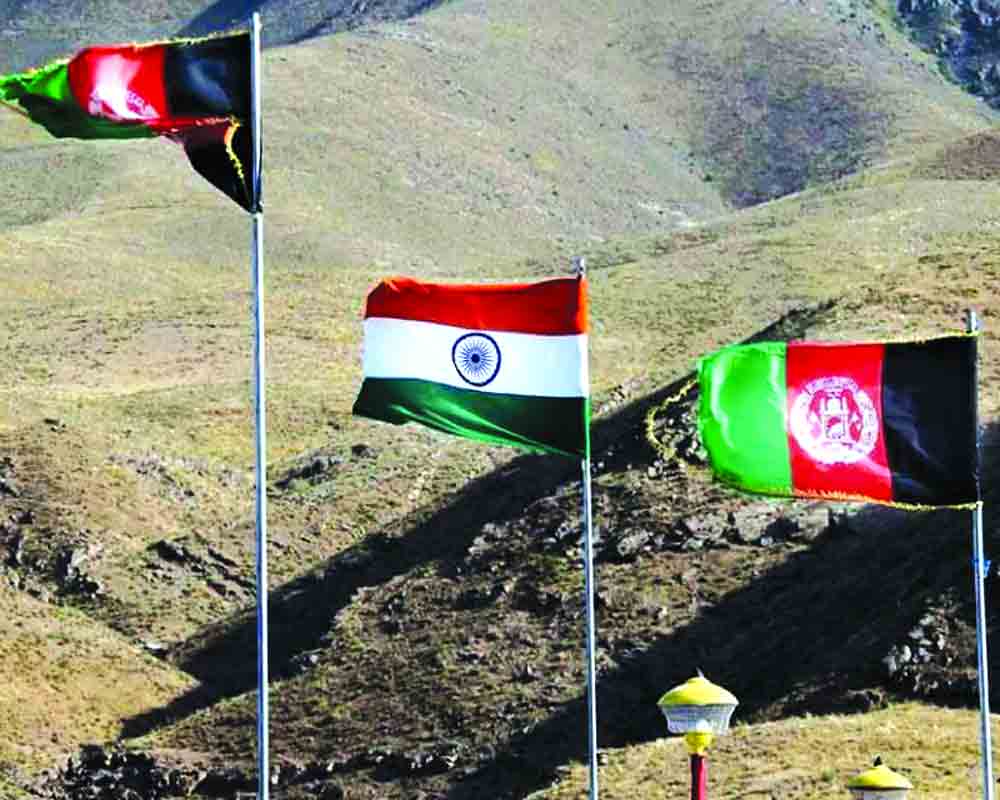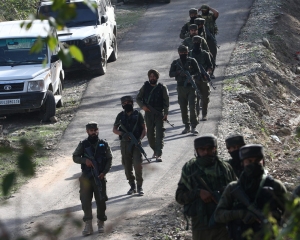The Indian borders with Pakistan in J&K would require more security investments
The murky Afghan situation has raised serious concerns for India. It was never a strong player but was able to make a niche among Afghans with its humanitarian aid and $3 billion investments since 2001 for rebuilding a devastated country.
Rightly India avoided the US prodding to be a military ally. The security stakes were always high. What can India do now? India has been investing in a relationship in an unstable regime and the Afghans coming to India for training have always acknowledged the warm gesture. Indian diplomacy played a critical role of emotional security, cultural ties and whatever level of trade and rebuilding mechanism it could provide. Thousands of Afghans are in India for work, training, re-skilling, education and medical treatment. Over 2,200 students of Afghan-origin studying in India on scholarship stare at an uncertain future. The Indian Council of Cultural Relations would continue to extend the help.
Pakistan that was feeling run down by the US for giving preference to India would now not miss an opportunity to embarrass India. And Iran, for whom Taliban is a matter of concern and has to protect its interests, has its embassy open in Kabul along with the missions of Russia and China.
Prime Minister Narendra Modi visited five countries in the region - Kazakhstan, Turkmenistan, Uzbekistan, Tajikistan and Kyrgyzstan - last year. An additional $1 billion line of credit to widen connectivity and energy sectors was issued and a business council was formed. The present flight detours and difficult land travels might affect the ties and business deals might become expensive.
That India is not friendless is testified by the safe passage it could arrange for its envoy diplomats and Indian nationals. Still, it is a foreign policy setback and national security concern. The engagement with Afghanistan and adjacent regions has to be reworked.
An immediate concern is whether its borders with Pakistan in Jammu and Kashmir would require more investments to secure it or not as J&K remains high on the Mujahideen agenda. Taliban raiding the embassy in Kabul and consul office in Herat speaks volumes as also the alleged kidnapping of Indians from around the airport.
The Taliban takeover of Afghanistan will bear an adverse impact on India's bilateral trade with it, according to the Confederation of All India Traders (CAIT). Trade between the two nations amounted to $1.4 billion in 2020-21 and $1.52 billion in 2019-20. It has hit Afghan traders also. Their exports for now are thawed and restoration depends on how situations normalize. Afghans sell dry fruits like dried raisin, walnut, fig, pine nut, almond dried apricot, pistachios and medicinal herbs.
Confederation of All India Traders says that prices of some commodities may also go up in the Indian markets due to uncertainty over bilateral trade and relations with Afghanistan. Exports from India stood at $826 million whereas imports amounted to $510 million in 2020-21. The not-so-large volume of trade may not look monetarily important but strategically, they help both the countries.
India's significant contribution in its rebuilding and investments in Afghanistan too would be missed there. India had an ambitious plan with the initiative of International North-South Corridor spanning Iran, central Asia and Eurasia. It is supposed to emerge as a major connector with Modi's concept linking the corridor to Kazakhstan-Turkmenistan-Iran rail link, now operational. It is also supposed to be linked to Chabahar and dedicated freight corridor having special economic zones on its fland being built by India. The Chabahar-Sistan-Baluchistan-Central Asia/Afghanistan route till recently was considered less risky than the high-risk provinces of Khyber Pakhtunkhwa and Baluchistan. With the changing political scenario this too is likely to become a challenge.
(The writer is a senior journalist. The views expressed are personal.)
























